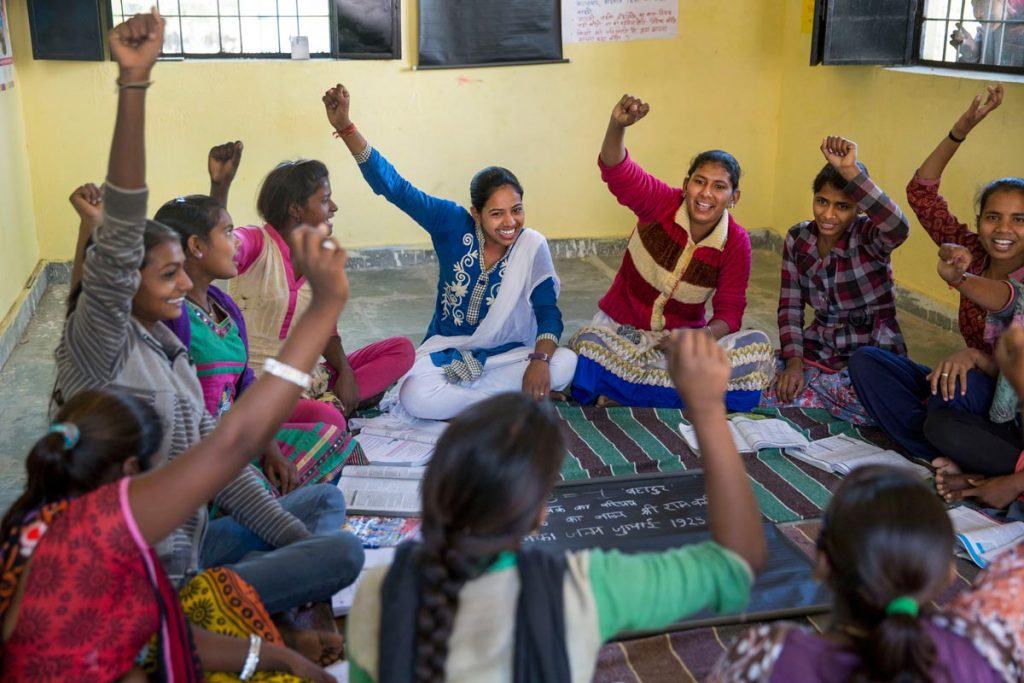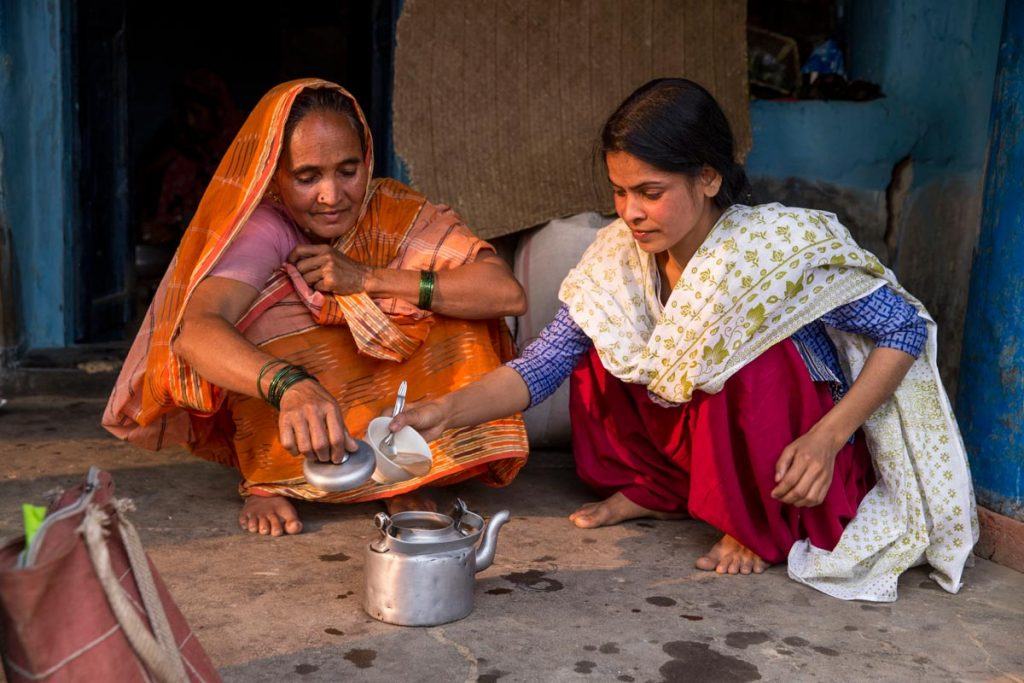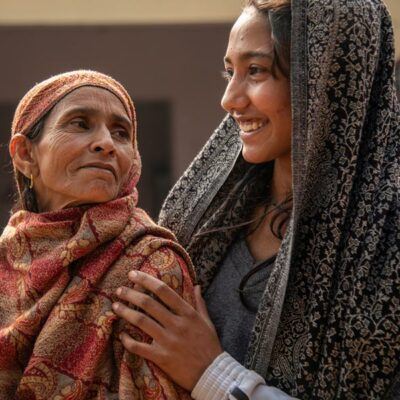When global development professionals talk about early marriage and health, they often focus on reproductive health consequences, like how early marriage raises a girl’s risk of dying during childbirth. However, other serious health effects of early marriage—like depression and anxiety—tend to get overlooked.
Sarojini Nadimpally wants to change that. AJWS is supporting Sarojini’s Delhi-based organization, SAMA Resource Group for Women and Health, to study the factors that support and threaten the mental wellbeing of young women in India, including those in early marriages.* Read on for emerging findings that Sarojini shared during a recent visit to AJWS headquarters.
School: increasing girls’ mobility and mental wellbeing

Young women really enjoyed going to school, Sarojini said. They viewed it as a source of hope—a way to potentially change their lives in the future for the better. In addition, school was often the only socially accepted and sanctioned way for young women to leave their homes.
Many young women had to leave school as teenagers because their parents were making plans to get them married; they were expected to focus on household tasks and to gain financial security via their husbands, as opposed to pursuing careers. When young women lost that mobility, they often experienced serious distress.
“[It’s] due to lack of companionship,” Sarojini said. “Mobility provided them opportunities to mingle and talk, share with peers, which was extremely difficult, if not impossible, in their homes … They expressed hopelessness following discontinuation of their education.”
Some girls who had to leave school demonstrated resilience and found ways of coping with their loss in whatever ways they could. Many shifted their attention to learning something else, like sewing skills or beauty parlor work.
Under surveillance: pressure to be a “good” woman
Girls typically felt like everyone was scrutinizing their every move, judging whether they were acting like “good girls and daughters, and later as good wives and daughters-in-law,” Sarojini said. “Every aspect of young women’s lives are directed, controlled,” Sarojini added. “The fear of transgression is a constant—as is the sense of resignation.”
If women and girls didn’t do what was expected of them, families often reacted by restricting their lives even further. Take, for example, a young woman who chose her partner, instead of following tradition and letting her family arrange a marriage.
If a young woman eloped with a partner of her choice, this invariably resulted in “curbing certain freedoms that other young women enjoyed in the community: access to mobiles [cell phones], schooling, manner of dressing, etc,” Sarojini said. “The implications of [this] dishonor and shame for mental wellbeing will need to be explored more deeply.”
Married women’s work: chores and childbearing

As the least powerful people in the social hierarchy of their new homes, young married women were expected to bear a disproportionate burden of the household labor. This led to soaring stress, as the women were forced to adjust to a major escalation in tasks like cooking and cleaning. They described no longer having any free time to themselves.
“Here, if we sit idle even for two minutes, our mothers-in-law will ask us to work,”one young woman told the researchers.
The young women reported that attempts to negotiate less household work tended to result in their new relatives speaking badly about their birth families. The young women also faced immense pressure to have children—and harsh judgment and even violence if it didn’t happen quickly. Infertility deeply affected young women’s mental wellbeing, Sarojini added: they faced intense pressure to bear healthy sons, in particular.
Limited options for support
The in-laws of married young women and girls didn’t tend to prioritize their wellbeing, so they didn’t typically respond to signs of stress or sadness. Sarojini said that people viewed it as normal and acceptable when women and girls expressed symptoms of depression or anxiety.
“If I’m sitting quietly, I’m not involved, I’m not eating, then it is not taken that seriously,” Sarojini said, explaining what girls told the researchers. “Unless it goes to the extreme where I’m behaving very incoherently, then you [the family] take it seriously.”
When young women exhibited extreme signs of mental health challenges, they were typically taken to traditional healers. Sarojini said some healers were caring and listened to patients, offering plant-based remedies—but other healers “subjected [girls] to different kinds of punishments.” A colleague of Sarojini’s talked about some of these dehumanizing treatments; for example, some communities believed that girls should drink water from a shoe to cure their mental health concerns.
Few young women were advised to see a psychiatrist or other mental health professional. Sarojini suggested that any support provided to distressed girls and young women needed to be evaluated on how well it served her needs.
“Is it really empowering her? Is it actually treating her?” she said. “Does she have any say in this entire thing? Is there anybody who is trying to understand what, exactly, she is going through? This is what is very crucial.”
The full study results should be available in coming months. This project emerged from SAMA’s previous research, including an AJWS-funded study that examines the multiple ways in which early marriage is related to health—and the many health programs and policies in India that could play a bigger role in addressing early marriage and supporting adolescent girls.
*The researchers interviewed married and unmarried young women, health care providers (including traditional healers), and teachers in Rajasthan and Uttar Pradesh, two states with particularly high rates of early marriage and poor indicators of health and economic security. SAMA also ran focus groups with married and unmarried young women and adolescent girls living in these areas. Full details on methodology will be available in the forthcoming research report.
 Elizabeth Daube is a Senior Communications Officer at AJWS.
Elizabeth Daube is a Senior Communications Officer at AJWS.

